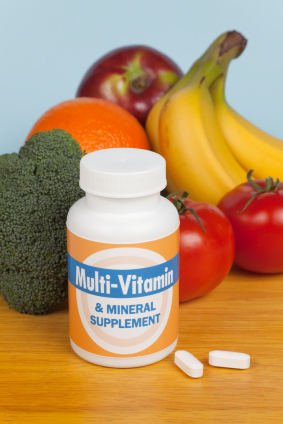CoQ10
Overview:
Coenzyme Q, found in all plant and animal cells as part of the mitochondria
(components of cells that produce energy for the cell and are rich
in fats, proteins, and enzymes), is necessary for energy production.
Coenzyme Q10, also known as uniquinone, is one form of coenzyme Q
and is used for energy production in humans. It is principally found
in the liver, while some is made from food. The primary sources are
meat, fish and vegetable oils.
How This Supplement Works in Your Body:
Produces Energy in the form of ATP (adenosine triphosphate)
Protects against free radical damage to cell structures and other
substances in the body.
Controls flow of oxygen within individual cells
Increases circulation
Boosts the immune system
May improve heart-muscle metabolism
Potential treatment for chest pain caused by narrowed coronary arteries
(coronary insufficiency)
May lower blood pressure
May treat congestive heart failure by enhancing pumping action of
heart
May be effective in congestive heart failure, ischemic heart disease
Where This Supplement is Found:
Soybean oil
Sesame oil
Canola oil
Wheat germ
Rice bran
Soybeans
Spinach
Broccoli
Beef
Salmon
Mackerel
Peanuts
Spinach
Sardines
How to Use:
Available as:
Tablets and capsules. Oil-based supplements may be absorbed more
efficiently. Coenzyme Q10 maybe take up to 4-8 weeks to build up
to peak levels in the body and thus result in noticeable effects.
Cautions:
Don't take if you have:
Heart disease, without first consulting with a medical professional
Consult your doctor if you:
Take any medicinal drugs or herbs including aspirin, laxatives,
cold and cough remedies, antacids, vitamins, minerals, amino acids,
supplements, other prescription or nonprescription drugs.
Pregnancy:
More dangers are associated with its use than benefits.
Do not use.
Breastfeeding:
More dangers are associated with its use than benefits.
Do not use.
Infants and Children:
It is hazardous to treat infants and children under 2 with any supplement.
** If not pregnant and do not consume amounts larger than a highly regarded manufacturer recommends on the package, no problems are expected.
Safe dosage:
To date, there has been no "safe" dosage established.
Toxicity:
There have been no toxic effects reported, even when administered
at high doses.
Deficiency:
May be caused by nutritional deficiencies, a genetic or acquired
defect in synthesis or because of increased tissue needs due to
a medical condition. Affects the heart due to the large amount of
ATP needed in order to function. Has been linked to cancer, muscular
dystrophy, diabetes, obesity, periodontal disease, lowered immune
function and neurodegenerative disorders such as Parkinson's disease.
Interactions:
Interacts with : Effects
Vitamins B6, Vitamin C, Vitamin B12, folic acid, riboflavin, niacin,
pantothenic acid : All required for the synthesis of Coenzyme Q10
Vitamin E : Protects Vitamin E from damage
Coenzyme Q10 : Lessens the toxic effects of doxorubicin
Beta blockers : Impede on the production and function of Coenzyme
Q10, and greatly affect heart
function
Lovastatin, pravastatin, and simvastatin : Inhibit HMG-CoA reductase,
thus lowering levels of Coenzyme
Q10
Phenothiazine, Neuroleptics, tricyclic antidepressants : Have effects
of the function of the heart

